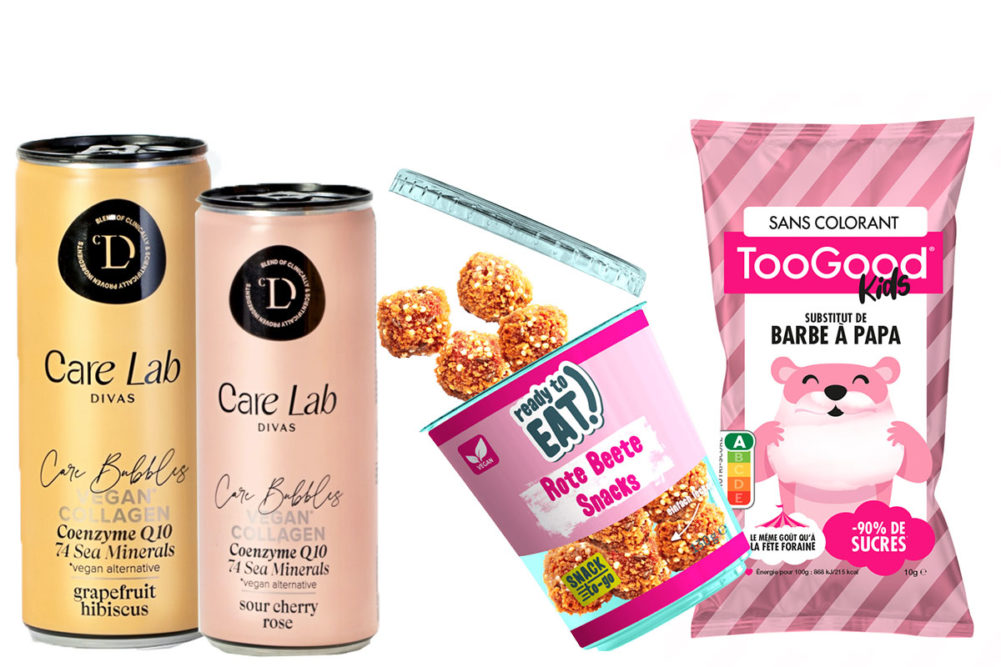PARIS — More than 7,000 companies from 130 countries exhibited at SIAL 2022 in Paris to showcase the latest in global food and beverage innovation. From freeze-dried kimchi to bee-free honey, the exhibitors did not disappoint the more than 300,000 attendees from around the world.
With the theme of “own the change,” the exhibition focused on the evolution of the agrifood sector on a global scale, including growth of startups that are inventing new ways of doing business with out-of-the-ordinary products.
“SIAL Paris 2022 is about much more than product innovation. We will always need to eat, which is why agriculture and the agrifood industry both represent sectors of the future,” said Nicolas Trentesaux, general director SIAL. “However, major changes are afoot in these growth industries and immense challenges lie ahead. Achieving food security demands innovation, and this innovation must take the new paradigms into account — producing more while polluting less, exploring new supply sources, and moving towards greater transparency.”
SIAL partnered with three international research firms to conduct separate studies focused on each firm’s area of expertise. Kantar looked at consumer expectations, ProteinesXTC investigated agrifood innovation, and The NPD Group delved into out-of-home catering trends. SIAL then provided exposition attendees an original analysis of the world’s major consumption trends to help navigate tomorrow’s food challenges.
The analysis found more than a third of global consumers are paying more attention to environmental and ethical issues, with 11% having already made changes with what and how they eat. The analysis also indicated Europe is leading the way compared to the rest of the world when it comes to environmental and ethical concerns. Italy and France are the most active, where these concerns were an important factor for 40% and 37% of consumers, respectively. The concerns extended to food products outside of the home, with 70% of French consumers and 80% of Italians wanting restaurants to engage in corporate social responsibility and contribute towards sustainable development.
No surprise, the study found plant-based diets were growing in popularity. When it comes to dining out, 29% of Europeans said they preferred establishments where the menu included vegetarian and vegan options. In other words, something for everyone and something for whatever suits your eating plan at that moment.
This trend has fueled the growth of vegan offerings across all out-of-home catering channels in France, with the fast-food sector leading the way. In fact, the fast-food channel accounted for 65% of animal-free out-of-home food sales in France.
And while plant-based substitutes for dairy and meat products continue to penetrate menus and retail space, more of the activity is on vegetable-forward dishes adopted from global cuisines. Think Mediterranean lentil bowl with curried grilled vegetables. For the flexitarian, throw on an easy-cooked egg.
A noteworthy observation from the exhibition floor was the predominance of products with “protected designation of origin” (PDO) claims. The PDO label is used to identify products that are produced, processed and prepared in a specific geographical area, by local producers and with ingredients from the region. It has gained traction throughout Europe where shoppers crave authenticity and appreciate knowing where their food comes from and how it was made.
“A refuge in uncertain periods, food is a vector of comfort and enjoyment for so many people,” Mr. Trentesaux said. “At the same time, the increasing power of societal commitment to food choices brings new taste to that enjoyment. Making a useful choice, at home or at a restaurant, makes us feel good. We have never been so eager to be swept away in feel-good vibes and new discoveries.”




